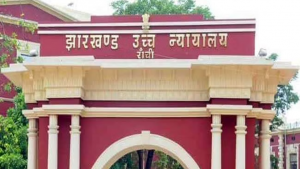 The Jharkhand High Court in the case of M/S. R.K. TRANSPORT & CONSTRUCTIONS LIMITED VERSUS THE STATE OF JHARKHAND, COMMISSIONER, COMMERCIAL TAXES DEPARTMENT, RANCHI, JOINT COMMISSIONER OF STATE TAX, RANCHI, DEPUTY COMMISSIONER OF STATE TAXES, RANCHI, DEPUTY COMMISSIONER OF STATE TAXES, HAZARIBAGH, M.B. ENTERPRISES, vide W. P. (T) No. 1624 of 2024 dated 13.06.2025, held that the State GST authorities were duty-bound under Section 76 of the Jharkhand GST Act (JGST), 2017 to initiate action against any person collecting tax but failing to remit it, irrespective of whether the supplier is registered under CGST or JGST. Jurisdictional excuses or supplier defaults cannot result in denial of credit to the buyer who has paid tax in good faith. The judgment provides the judicial intolerance towards supplier misrepresentation and departmental inaction.
The Jharkhand High Court in the case of M/S. R.K. TRANSPORT & CONSTRUCTIONS LIMITED VERSUS THE STATE OF JHARKHAND, COMMISSIONER, COMMERCIAL TAXES DEPARTMENT, RANCHI, JOINT COMMISSIONER OF STATE TAX, RANCHI, DEPUTY COMMISSIONER OF STATE TAXES, RANCHI, DEPUTY COMMISSIONER OF STATE TAXES, HAZARIBAGH, M.B. ENTERPRISES, vide W. P. (T) No. 1624 of 2024 dated 13.06.2025, held that the State GST authorities were duty-bound under Section 76 of the Jharkhand GST Act (JGST), 2017 to initiate action against any person collecting tax but failing to remit it, irrespective of whether the supplier is registered under CGST or JGST. Jurisdictional excuses or supplier defaults cannot result in denial of credit to the buyer who has paid tax in good faith. The judgment provides the judicial intolerance towards supplier misrepresentation and departmental inaction.
Facts of the Case: In this case, the petitioner was engaged in coal transportation and had rental/hiring of commercial motor vehicles from Respondent No. 6 (herein supplier) during FY 2020–21. The petitioner paid the full invoice amount (₹73.34 lakh including ₹11.17 lakh in GST) through banking channels. However, the supplier did not file GSTR-1, and hence, the ITC was not reflected in GSTR-2A, causing denial of credit to the petitioner. Despite legal notices and representations to the tax department, no action was taken against the defaulting supplier.
Issue: Whether the State GST authorities are obligated under Section 76 of the JGST Act, 2017 to take action against a supplier who collected tax but failed to file returns and deposit the tax to the government, thereby causing denial of ITC to the recipient?
Held that: The Court observed Section 76(1) and (2) to place an obligatory responsibility on the proper officer to act against “every person” who collects tax but fails to remit it, regardless of whether the person is registered under CGST or SGST. The Court rejected the State GST department stand that it could not act because the defaulting supplier was registered under CGST, not JGST, stating that Section 76 is wide enough to cover such defaults and obligates action even against CGST-registered persons where tax dues impact the State exchequer, and the excuse that the supplier falls under CGST jurisdiction was rejected as unsustainable.
The Court upheld the petitioner stand clarifying that they paid GST with supporting documents (invoices + bank statements). No merit adjudication occurred in the earlier writ (W.P. (T) 2665/2022), which merely advised the petitioner to approach the authorities. Dismisses misuse of res judicata when no substantive decision has been made. Reaffirms access to judicial remedies in tax injustice cases.
The Court directed the state tax authorities to initiate proceedings under Section 76 within 8 weeks, and imposed ₹1,00,000 as cost on the defaulting supplier to be paid to the petitioner.
To read the complete judgment 2025 Taxo.online 1133


